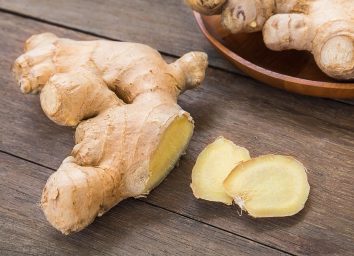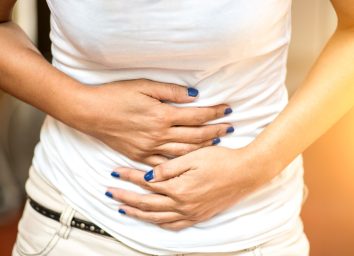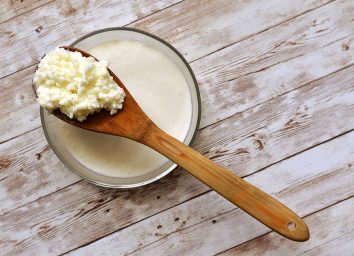38 IBS Remedies That Will Change Your Life

According to the IBS Global Impact Report, about 11 percent of men and women suffer from IBS, but it’s believed that many cases go undiagnosed. It seems some conditions are simply too embarrassing: abdominal pain, cramps, bloating, flatulence, mucus in the stool, food intolerances, unintentional weight loss, and constipation or diarrhea (often alternating between the two)—stuff straight out of that scene in Airplane! Except not funny. (You try working, eating, or having sex with constipation or diarrhea.) “Some people don’t find their IBS symptoms bothersome or unusual, and some may be shy about talking to a doctor about bowel problems,” says gastroenterologist G. Richard Locke, M.D., professor of medicine at the Mayo Clinic College of Medicine. While there’s no cure for the syndrome, there are certainly healing foods that you should incorporate into your diet to relieve IBS symptoms.
The editors at Eat This, Not That! and The Doctor’s Book of Natural Health Remedies have researched this definitive list of the best foods for IBS sufferers as well as common trigger foods you should avoid. Employ the tips and tricks below to finally banish that bloat, gas, and frustration.
FIRST, THE SYMPTOMS OF IBS

So do you have IBS? The diagnostic criteria include having abdominal pain or discomfort for at least 12 weeks out of the previous 12 months, not necessarily consecutively. Generally, pain is relieved by a bowel movement; the frequency of bowel movements alters when pain or discomfort begins; and/or there are changes in the form or appearance of the stool. “For most people, symptoms occur now and then, a couple of days a week or so,” says Locke. “To meet the definition of IBS, you have to have the symptoms 25% [or more] of the time.”
NOW, THE REMEDIES

It’s a bit of a—forgive us, please—crapshoot. No single treatment for IBS works for everyone. “The initial management of IBS is really about managing your lifestyle,” says Locke. “People need to pay attention to stress in their lives. Regular exercise is also crucial, as is eating smaller amounts of food frequently rather than large meals,” he adds.
After that, treatment is based on whether diarrhea or constipation is predominant. For mild symptoms, Locke says, you can self-treat, using milk of magnesia for constipation and nonprescription Imodium (loperamide) for diarrhea. If symptoms worsen, consider the following options.
ELIMINATE THE TRIGGERS
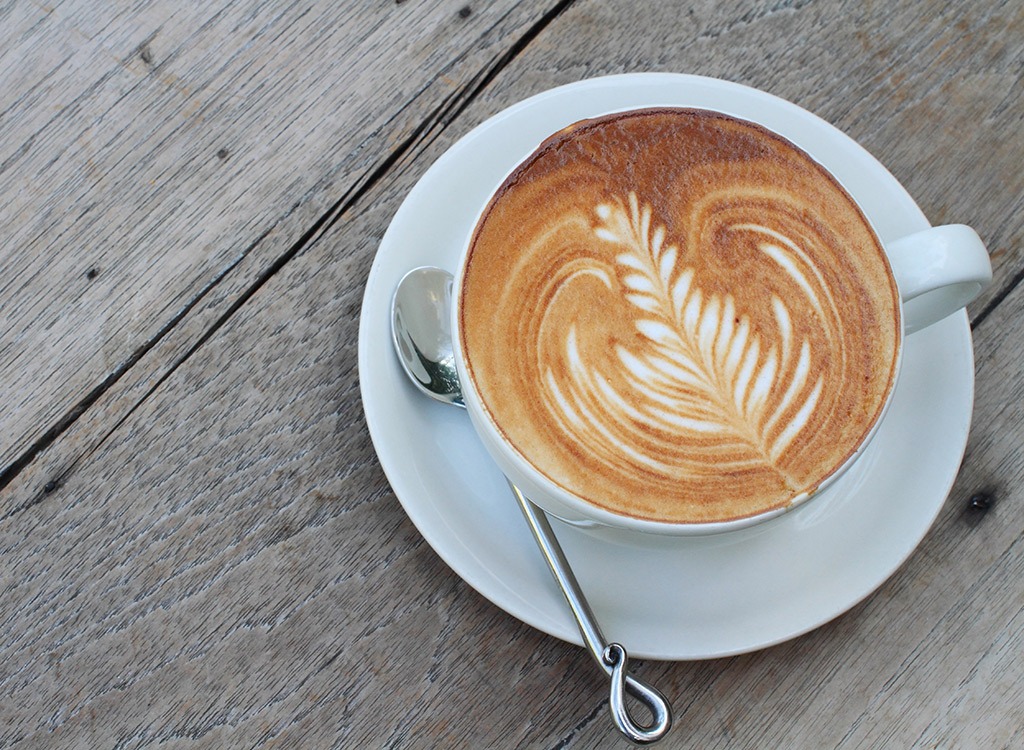
Steer clear of foods that exacerbate your symptoms. Among the common culprits are greasy foods, milk, grains, alcohol, chocolate, and caffeinated beverages. “Up to 50% of patients will relate a worsening of symptoms to specific foods,” says Lin Chang, MD, professor of medicine in the division of digestive diseases at the University of California, Los Angeles, David Geffen School of Medicine.
Avoid high FODMAP foods. According to Stanford Health Care, FODMAPs are carbohydrates (sugars) that pull water into the intestinal tract. These sugars include fructose, lactose, fructans, galactans, and polyols. When eaten in excess, FODMAPs are malabsorbed and fermented upon by bacteria in the intestinal tract. The low FODMAP diet was developed by researchers in Australia to treat IBS and is comprised of foods that are considered to have low amounts of FODMAPs.
FOCUS ON FIBER
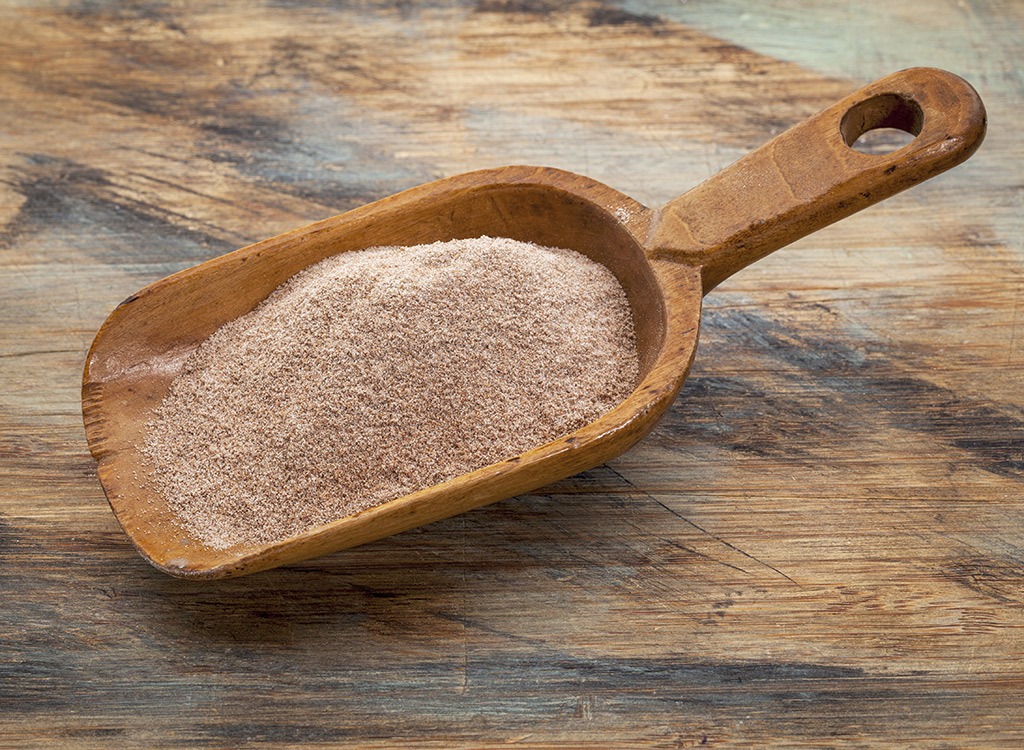
It might sound counterintuitive, but increasing fiber aids both diarrhea- predominant and constipation-predominant IBS. “Fiber has water-holding capacity, so it bulks up the stool,” says Keith Bruninga, MD, a gastroenterologist at Rush University Medical Center in Chicago, explaining how it can ease diarrhea. “And it can also help bring fluid into the bowel,” lessening constipation.
Eat plenty of fiber-rich foods, such as fruits, vegetables, and whole grains, chia or flaxseeds, or consider adding a fiber supplement. For the best results, aim for at least 30 grams of fiber daily. This amount was found to fuel weight loss and improve health just as effectively as more complex, calorie-cutting diets, according to University of Massachusetts Medical School findings. Here are a few of our favorite high-fiber foods:
FLAXSEEDS
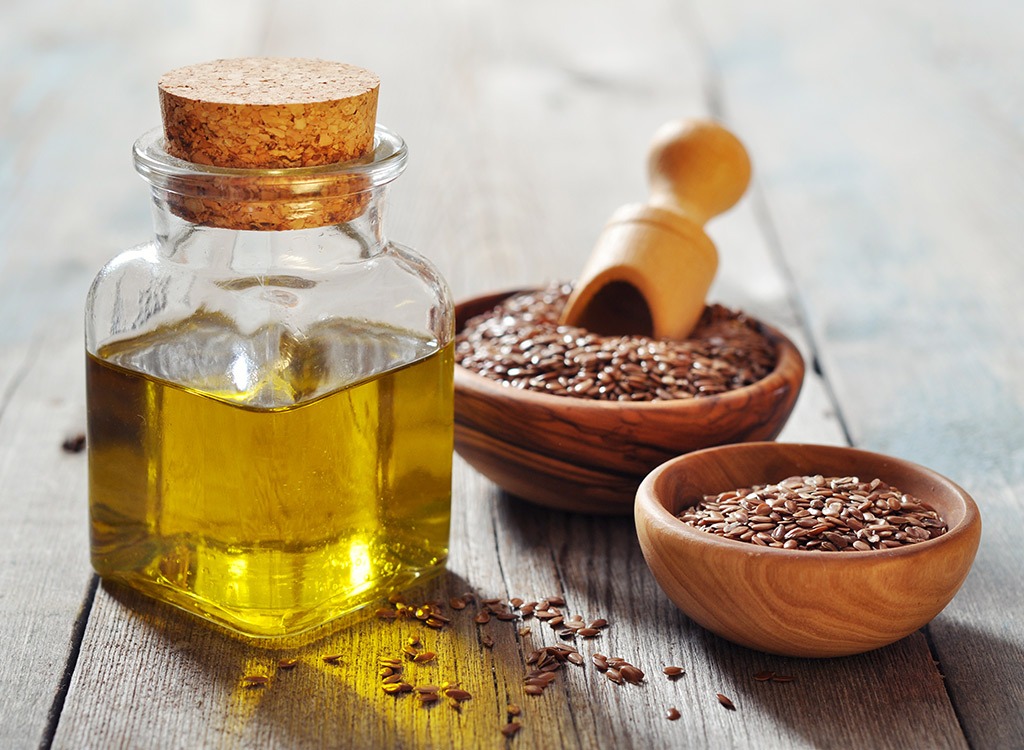
A mere tablespoon of these ultra-powerful seeds serves up nearly three grams of belly-filling fiber for just 55 calories. Not bad! Not to mention, flaxseeds are the richest plant source of omega-3 fats, which help reduce inflammation, ward off mood swings, and help prevent heart disease and diabetes. Flaxseeds have a pretty low smoke point, so we don’t recommend cooking with them, but they make a welcome crunchy addition to smoothies, salad dressings, and yogurt.
Almonds
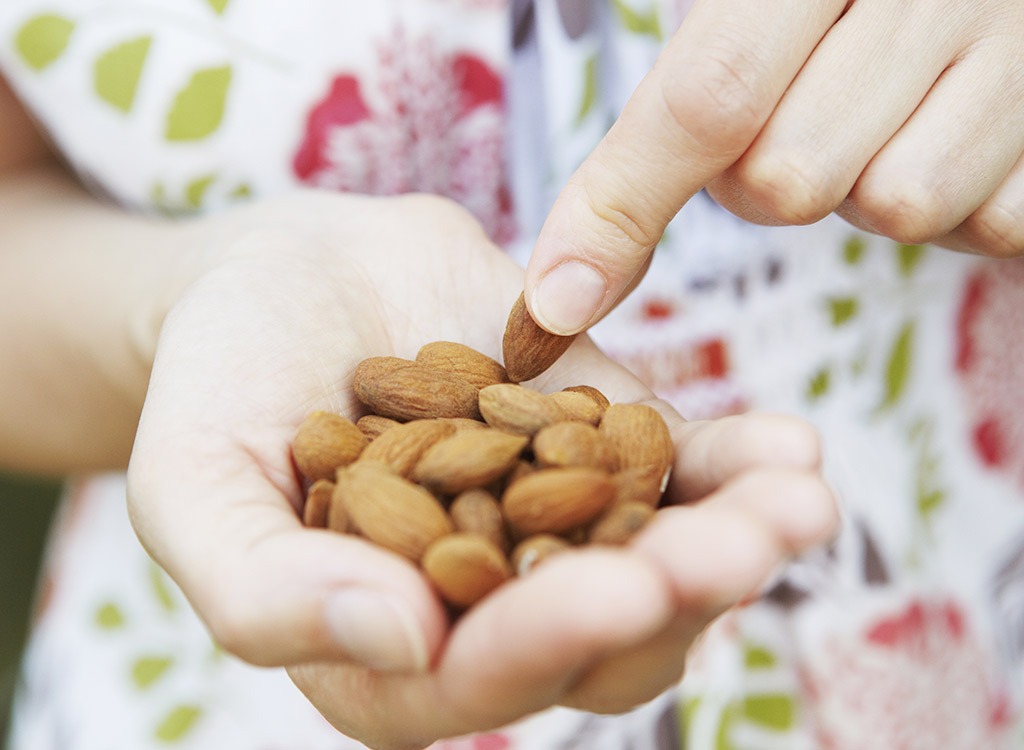
One ounce of this nutritious nut contains 3.5 grams of fiber (that’s’ 15% of your DV)! What’s more, almonds are a good source of magnesium and iron, nutrients most people don’t get enough of. To incorporate them into your IBS-soothing diet, throw them into your yogurt and oatmeal or eat them solo as a hunger-banishing snack.
Fresh Figs

Figs, and we don’t mean the Newtons, are a great way to add more fiber to your diet. Try chopping up fresh ones and adding them to oatmeal or Greek yogurt with some honey, cinnamon and slivered almonds. Alternatively, you can eat them whole as a quick, on-the-go snack to satisfy your sweet tooth. Four of them will cost you 189 calories and provide 7.4 grams of IBS-fighting fiber.
OATS
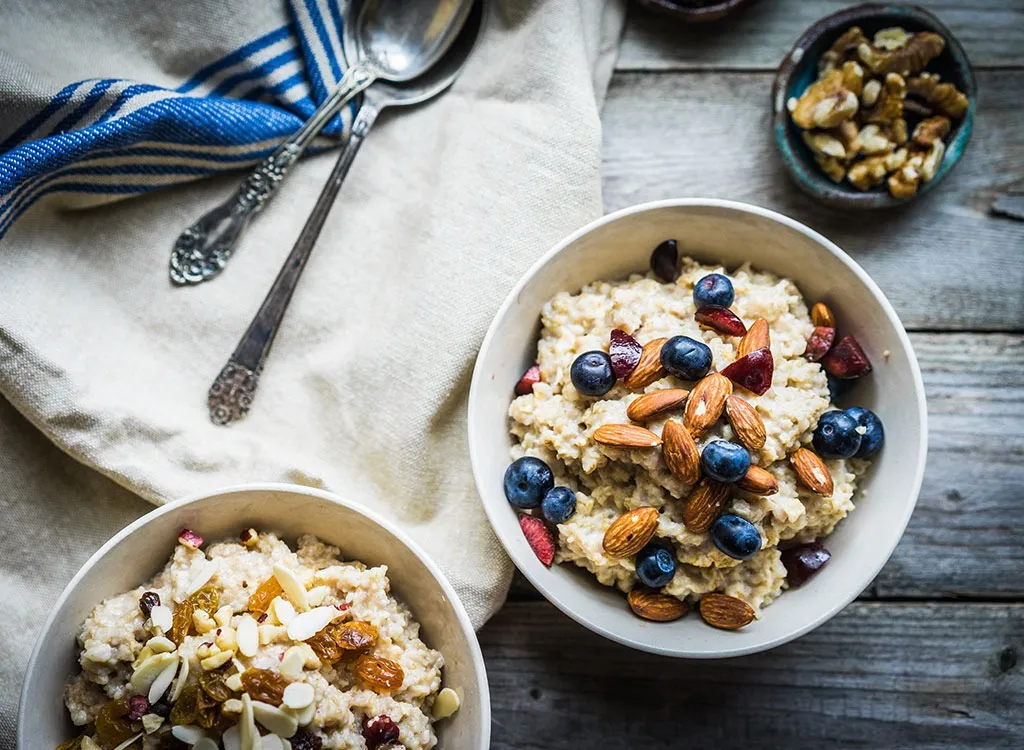
Oats are a rich source gut-friendly fiber. One cup of oats delivers 16 grams of fiber, including insoluble, which feeds healthy bacteria in your gut, and a soluble kind called beta-glucan. Bonus: Oats also contain the anti-inflammatory compound avenanthramide, which combined with beta-glucan—help prevent against obesity-related health problems including heart disease and diabetes. And research in the Journal of the American College of Nutrition suggests oatmeal may be the most filling breakfast in the cereal aisle—resulting in greater and longer-lasting feelings of satiety than ready-to-eat breakfast cereal. Enjoy some with a cup of weight-loss tea—choose a decaffeinated one from our best teas for weight loss.
BLACKBERRIES
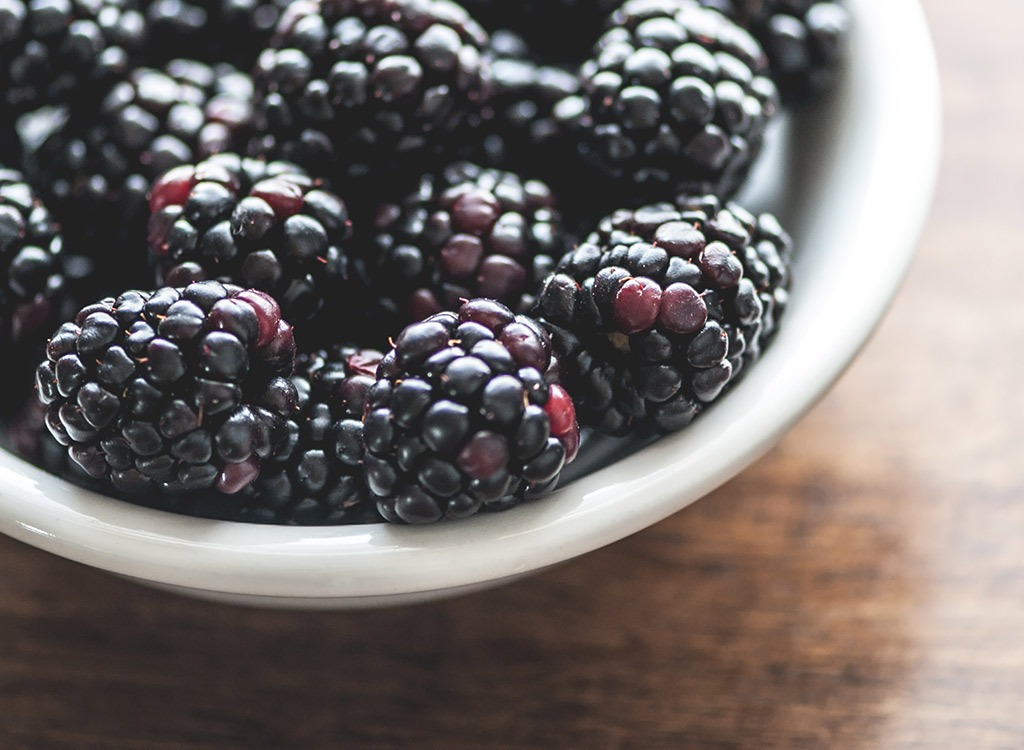
One cup of antioxidant-rich blackberries packs in 7.6 grams of fiber! Bonus: By combining the two, you trigger your gut to produce butyrate, a fatty acid that reduces fat-causing inflammation throughout your body. In a Canadian study, researchers discovered that those whose diets were supplemented with insoluble fiber had higher levels of ghrelin—a hormone that controls hunger. Shed pounds easily—and in minutes—by cooking up these essential, delicious and proven recipes for overnight oats that help you lose weight.
BANANAS
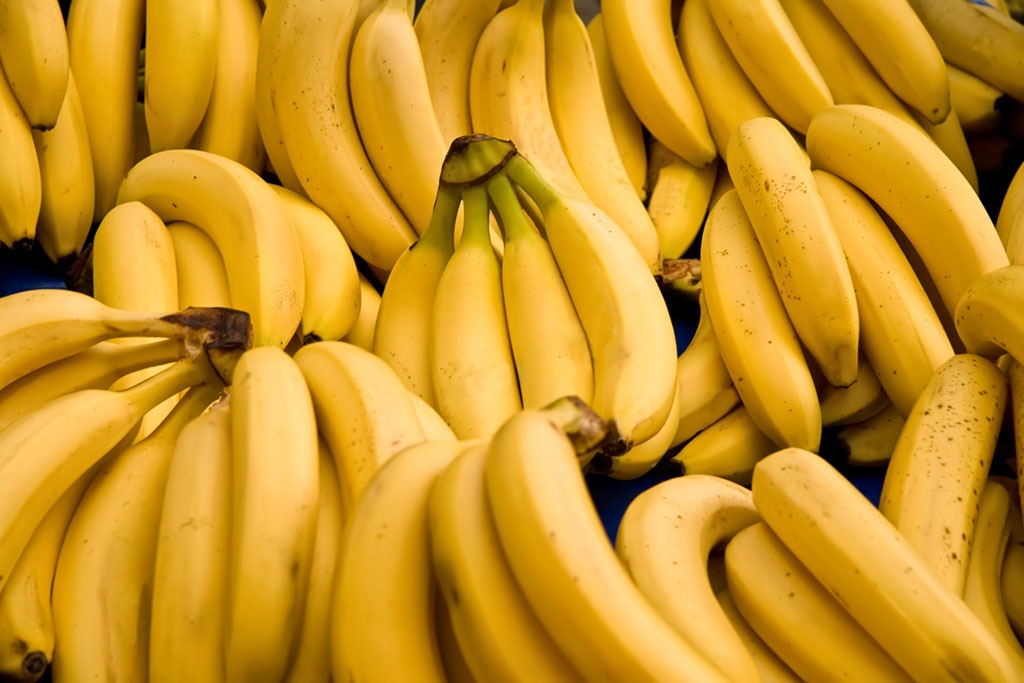
Knock out IBS and bloat with bananas. One medium banana has a mere 105 calories and 3 grams of fiber. Researchers say the fruit is a good source prebiotic fiber, which helps to feed good gut bacteria and improve digestion. Bananas are also a good source of potassium, which helps diminish water retention. Swap your daily apple, which is high in IBS-aggravating fructan, for a banana or add it to your oats, smoothies, or probiotic-rich yogurt.
BLUEBERRIES
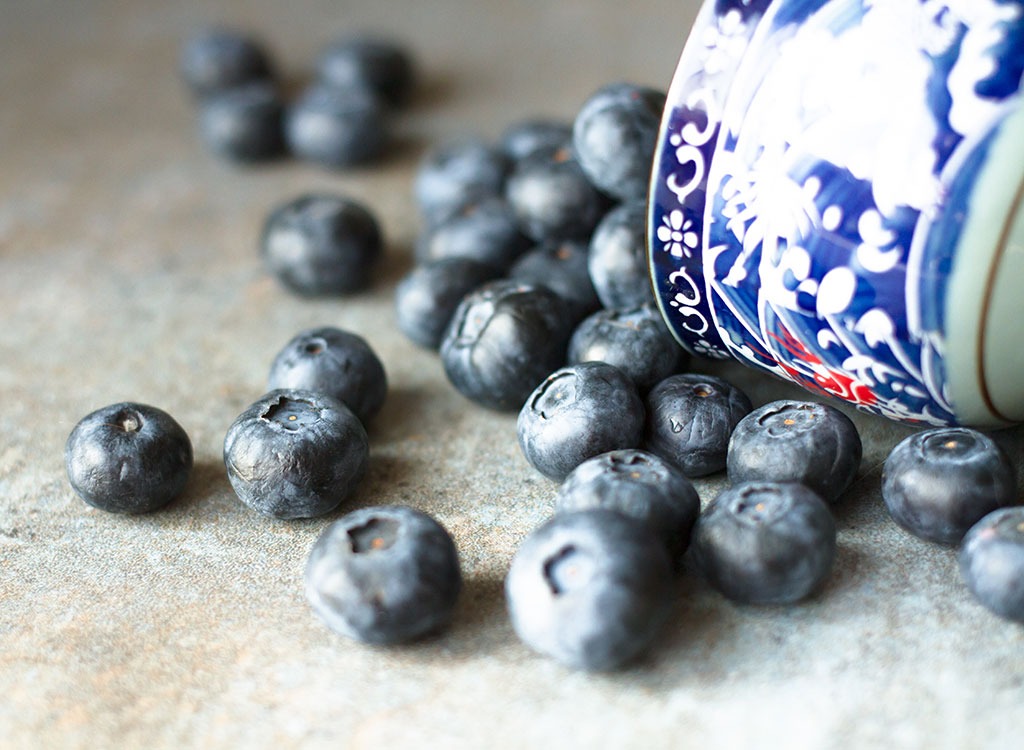
Blueberries, with their low-sugar/high-fiber content, are a great midday snack that won’t cause digestive discomfort. One cup provides 4 gram of fiber and a mere 14 grams of sugar. Another benefit of blueberries’ mega-fiber is managing your hunger levels with ease. “The high fiber content of this tasty blue fruit also promotes satiety, as our bodies cannot digest it,” Moskovitz details. “As a result, it stays in our stomachs longer, expands once it absorbs water and gives you that ‘I’m full’ feeling for longer.”
SHREDDED COCONUT
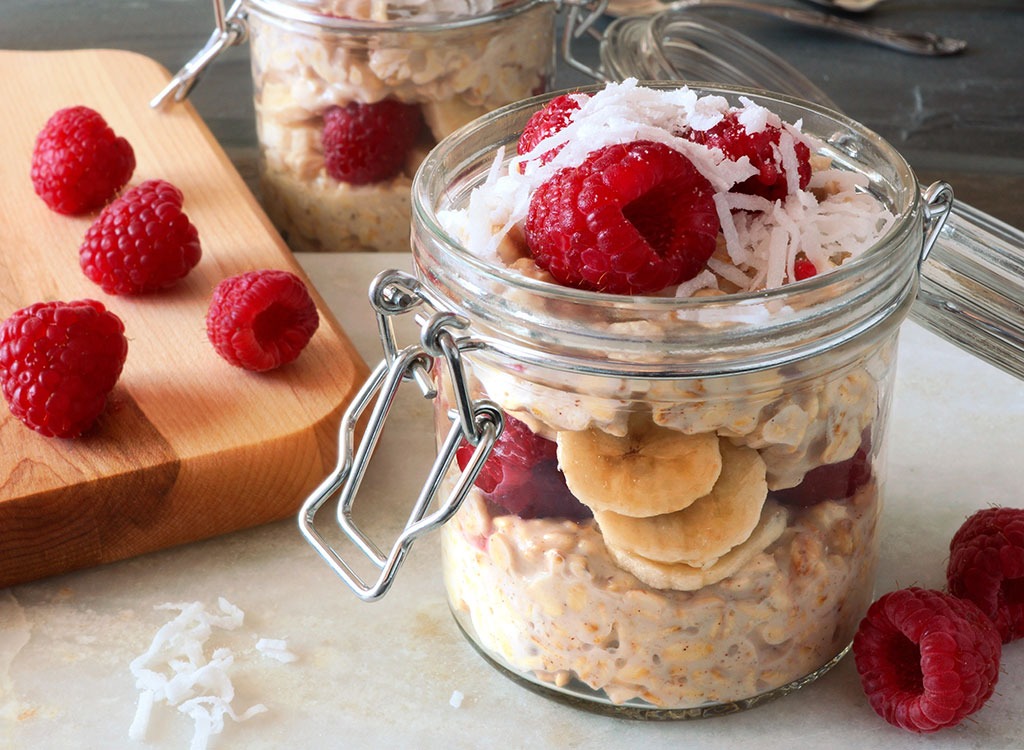
Don’t let shredded coconut’s fat count (3.3 grams per tablespoons) scare you off — good bacteria love fat! Not only does four tablespoons yield 2.6 grams of fiber, but the tropical treat is filled with a medium-chain saturated fat called lauric acid that soothes inflammation, fights bad bacteria, and converts into energy more easily than other types of fat. Shredded coconut makes a stellar addition to oats, weight loss smoothies, and yogurt, and can also be used as a breadcrumb alternative (hello, coconut shrimp!).
SUNFLOWER SEEDS

Sick of noshing on almonds? A quarter-cup serving of sunflower seeds is just over 200 calories and provides 3 grams of fiber. Plus, sunflower seeds make a healthy and filling addition to any diet, serving up a fair share of magnesium, a mineral that keeps blood pressure normal, maintains steady heart rhythm and helps boost lipolysis, a process by which the body releases fat from its stores. Try tossing them into oatmeal and salads for extra crunch.
POPCORN

When it’s not drenched in butter, caramel, or oil, popcorn is a gut-friendly weight loss snack—and one that’s packed with fiber (about 3.5 g per 3 cups) and cancer-fighting compounds called polyphenols. But stick to the air-popped variety. Many of the microwaveable varieties line their bags with perfluorooctanoic acid (PFOA)—the same stuff found in Teflon pots and pans. Studies have linked the chemical to infertility and weight gain. Yikes!
COCOA POWDER
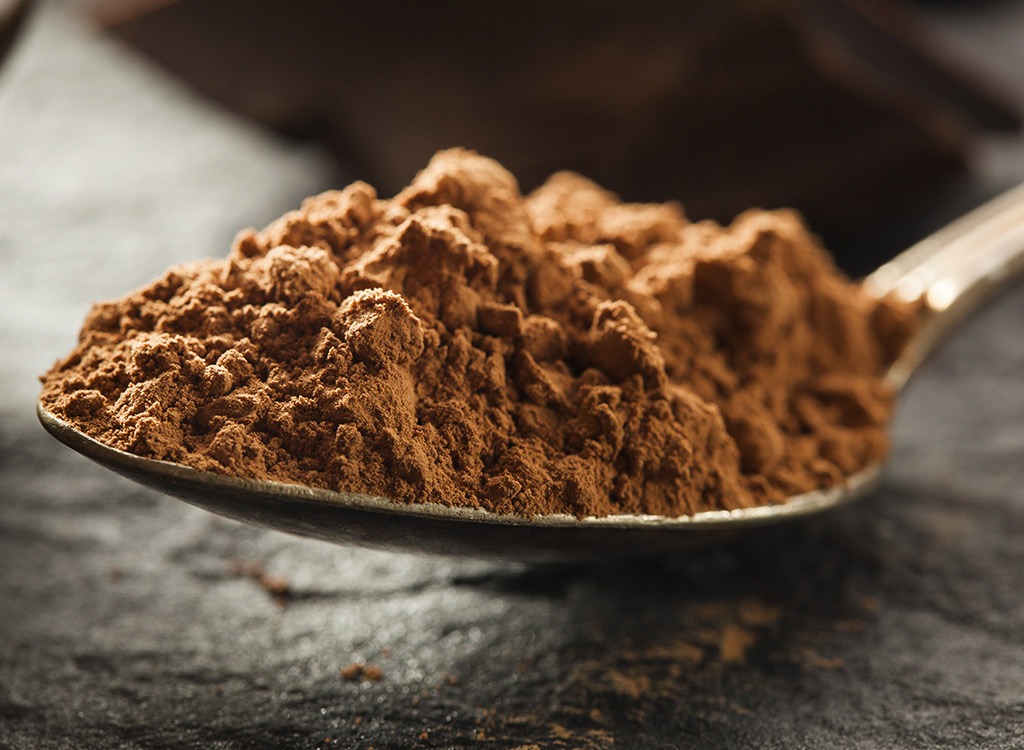
If you’re a chocolate addict, we’ve got some good news! Cocoa powder, the raw, unprocessed form of cocoa powder, is a great way combat IBS and sneak more fiber into your diet—while simultaneously quieting your chocolate cravings. With the colder months approaching, try mixing two tablespoons of cacao powder into hot water for a healthy, filling spin on hot cocoa that packs in 4 grams of fiber. We like Rapunzel Organic Cocoa Powder because it hasn’t undergone alkalization, a process that strips out the health benefits of the cocoa bean.
ARTICHOKE HEARTS
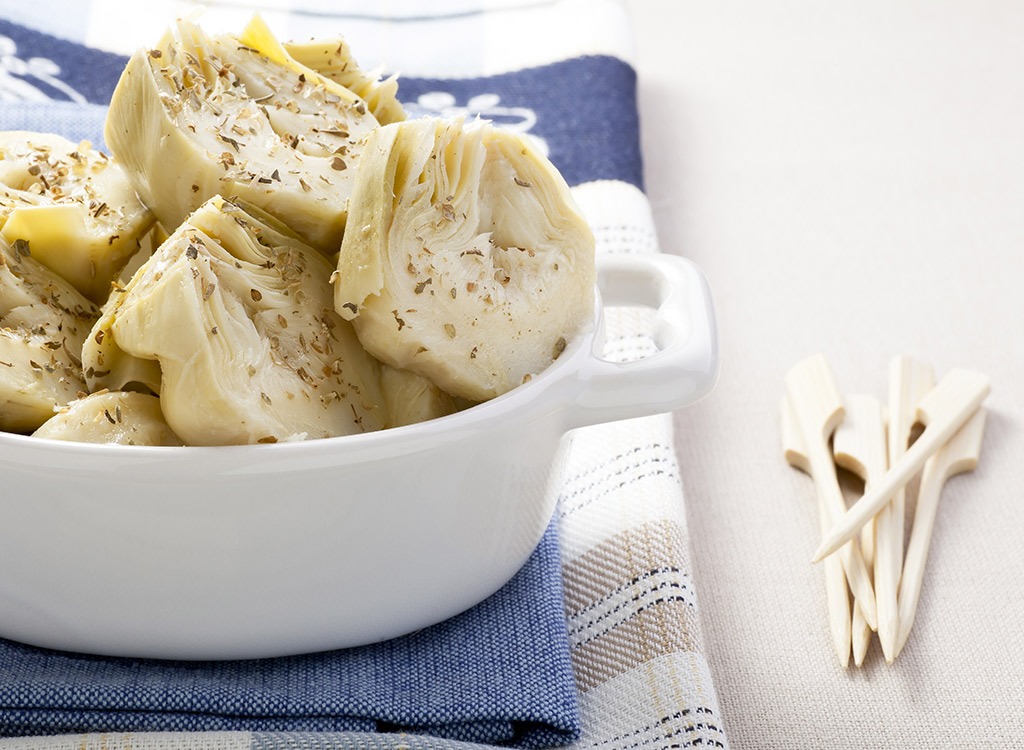
If you don’t have time to boil or steam the antioxidant-rich veggie, opt for the canned or jarred variety. (Just be sure to rinse off the artichokes if they have been swimming in added sodium.) With 14 grams of fiber for a mere 89 calories, this vegetable makes a great side for those combatting IBS and watching their waistlines.
AVOCADO
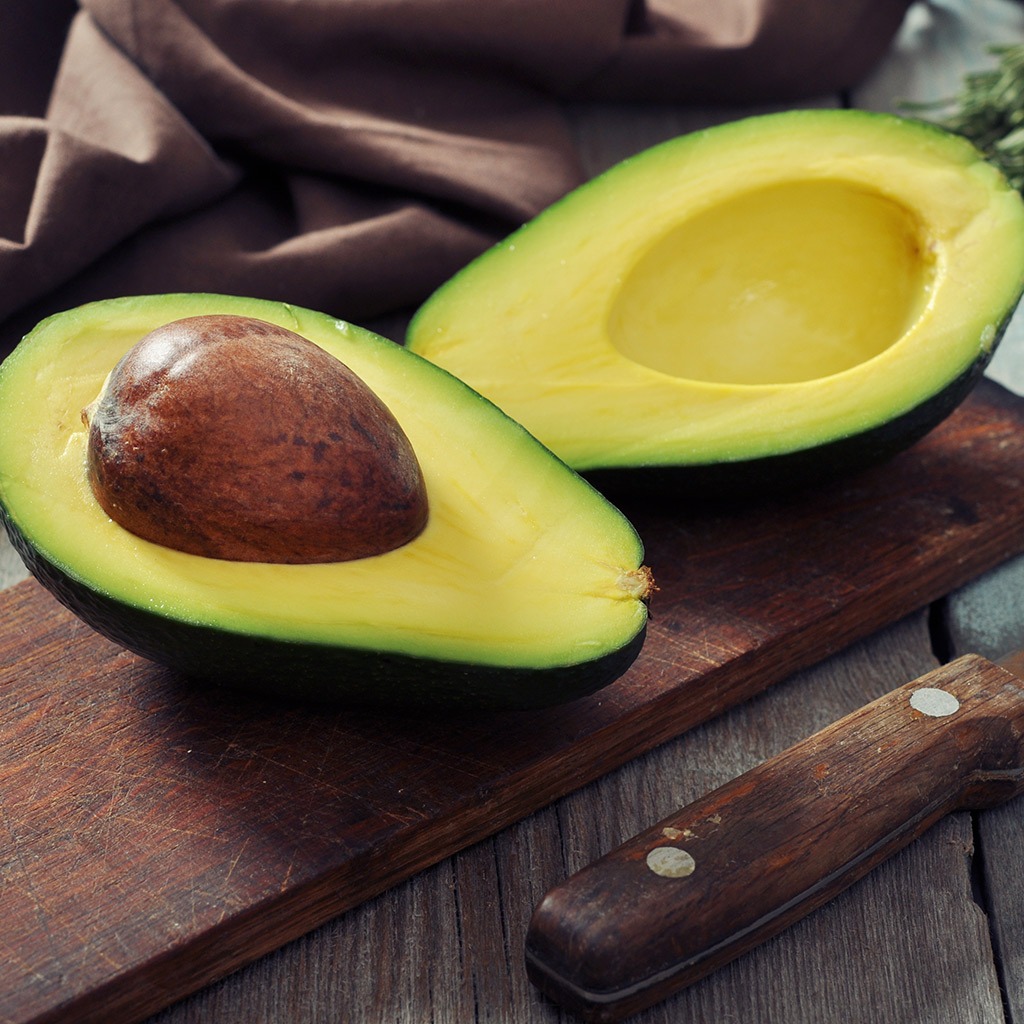
The avocado is famous for its waist-whittling monounsaturated fat content, but that’s not the only reason it’s a dietary champion. The creamy, green fruit is also jam-packed with fiber, making it a great dietary option for those suffering from IBS. One half of the fruit contains 4.6 grams of fiber which is also why it’s so satiating. Bonus: People who ate half a fresh avocado with their lunch reported a 40 percent decreased desire to eat for hours afterward in a Nutrition Journal study. Add the low-carb fruit to salads and quinoa bowls, or mash it on top of Ezekiel bread for one of our favorite snacks: avocado toast. Top your toast off with some crushed walnuts, cinnamon, salt, pepper, honey and thin slices of pear — another fruit that’s known for its high fiber content. This sweet spin on avocado toast is one you’re sure to love.
EDAMAME
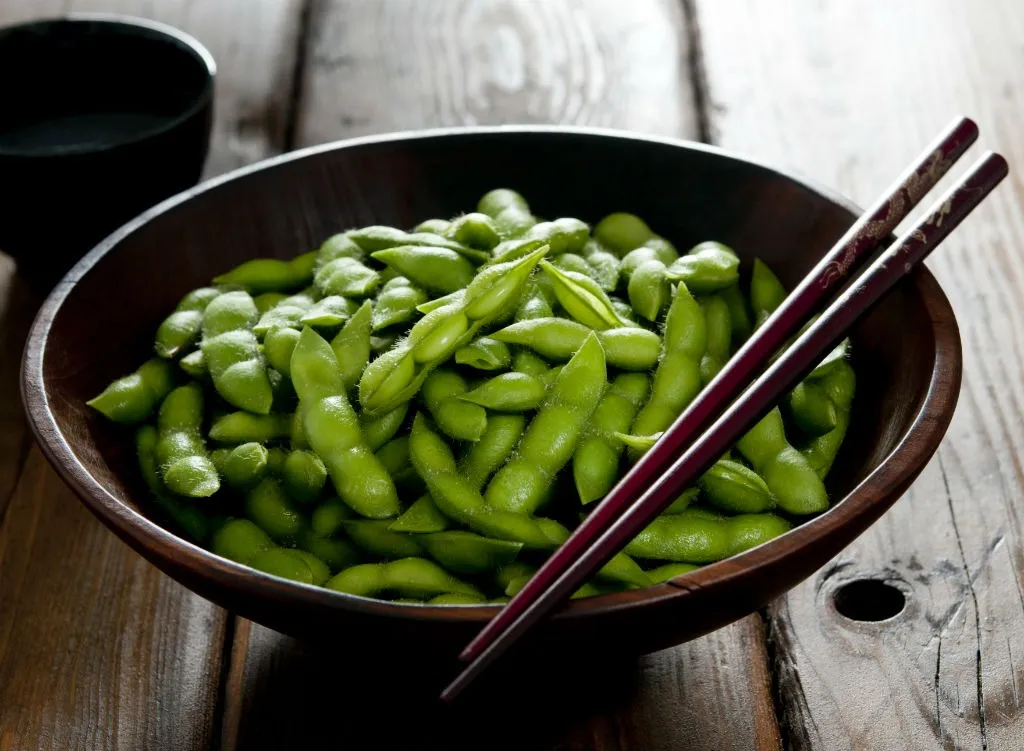
Edamame is boasting with gut-friendly fiber—8.1 grams per cup! Bonus: Aside from their high fiber content, these beans are rich in energy-boosting B-vitamins, essential amino acids and hunger-busting protein. Experts say the best time to munch on lightly salted edamame is after a tough workout. Its unique nutrient profile helps replenish energy stores and the sodium will help to replace lost electrolytes. Snack on them between meals to keep hunger at bay and maintain a healthy gut.
ACORN SQUASH
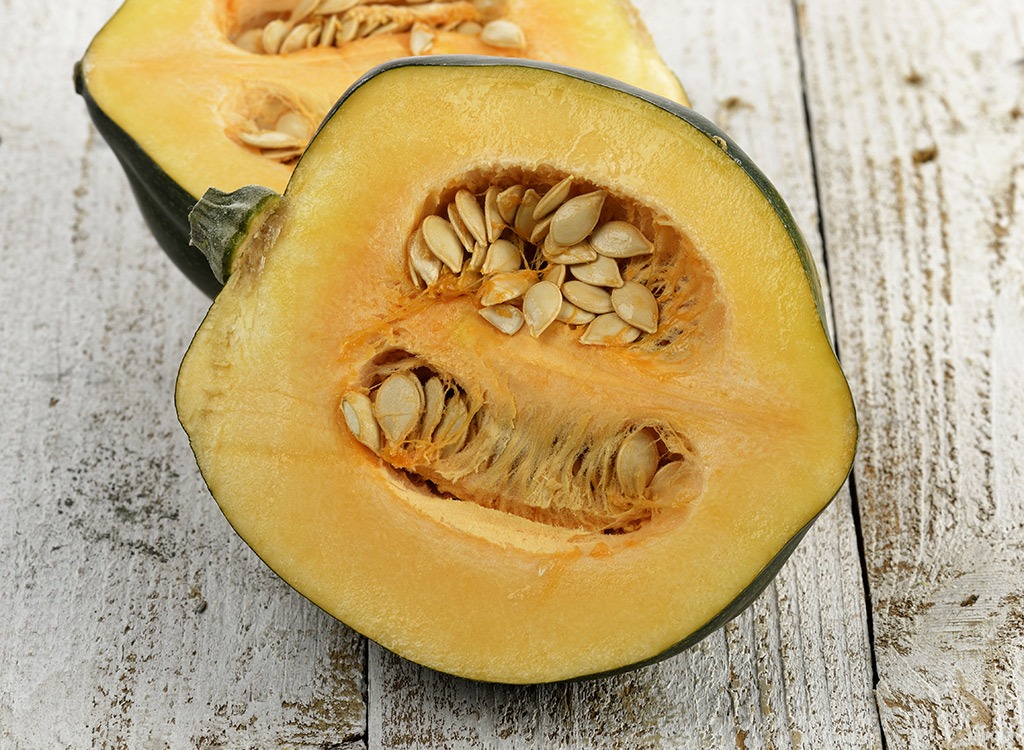
This seasonal squash serves up a third of the day’s fiber at 9 grams per cup and it’s nutritional benefits don’t just stop there. The naturally sweet veggie contains 30 percent of your daily vitamin C needs. The body uses the nutrient to form muscle and blood vessels, and it can even boost the fat-burning effects of exercise by 30 percent, according to a study in the Journal of the American College of Nutrition. For a simple—yet sweet—side dish, halve an acorn squash, scoop out the seeds and add a little cinnamon and a drizzle of maple syrup. Bake for about an hour at 400 degrees F.
LEAFY GREENS
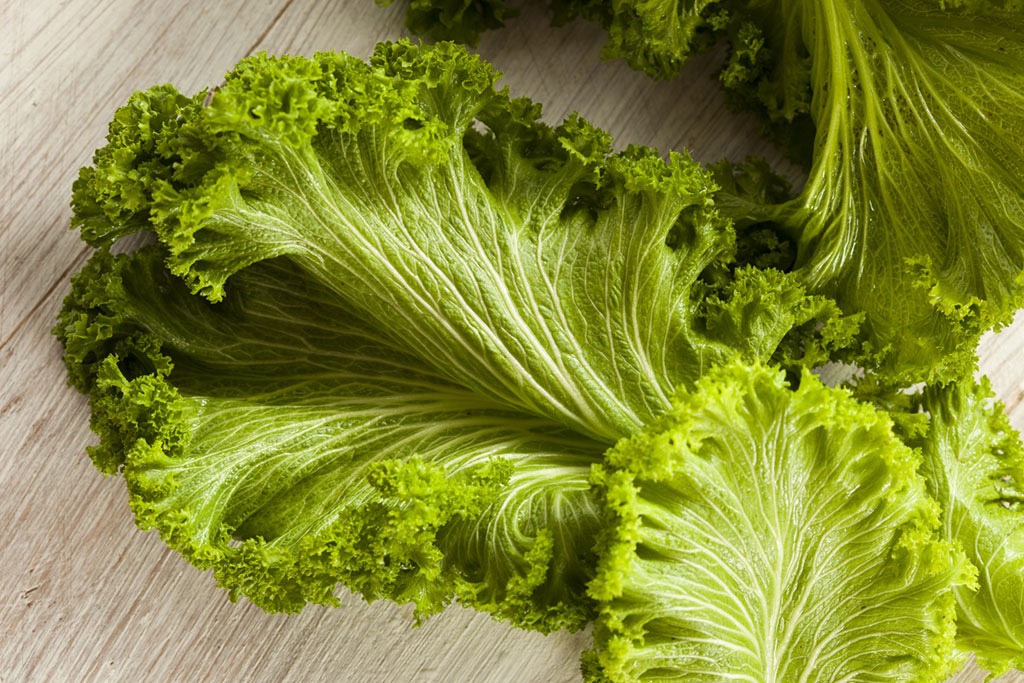
Leafy greens like kale, arugula, and spinach contain indigestible fiber that adds bulk to stool, making it easier to pass through the digestive system. Additionally, they are low in fermentable carbohydrates responsible for triggering bouts of IBS. Toss them into smoothies, create salads or steam them. Aim for one cup a day raw or ½ cup cooked. Speaking of greens, try Garden of Life’s Detoxifiber, an organic food-based blend with a balanced ratio of soluble and insoluble fiber that’s free of gluten, psyllium, and harsh laxatives. Since taking too much fiber too quickly can cause bloating, gradually work your way up to the dosage recommended on the package.
Heal Your Gut
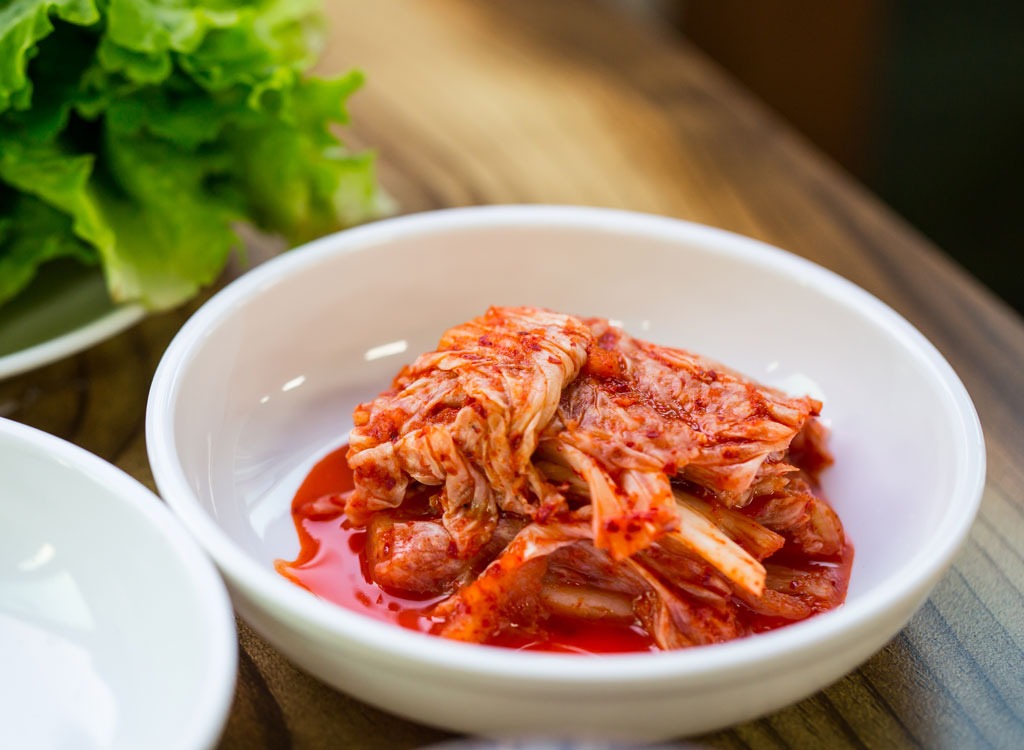
Probiotic microorganisms, believed to make the intestinal environment friendlier by populating it with “good” bacteria, are worth a try. “Study after study suggests that the influence of those wriggling bugs have a far-reaching impact on our health,” writes Tasneem “Dr. Taz” Bhatia, M.D., medical director of the Atlanta Center for Holistic and Integrative Medicine, in her groundbreaking book The 21-Day Belly Fix.
Probiotics are found largely in fermented foods, and the MVPs usually mentioned are yogurt, kefir, and kimchi (pictured). But probiotic sources go way beyond breakfast and Korean BBQ; you can consume them as part of a wide variety of meals and snacks. Here are some of the best options.
GREEK YOGURT
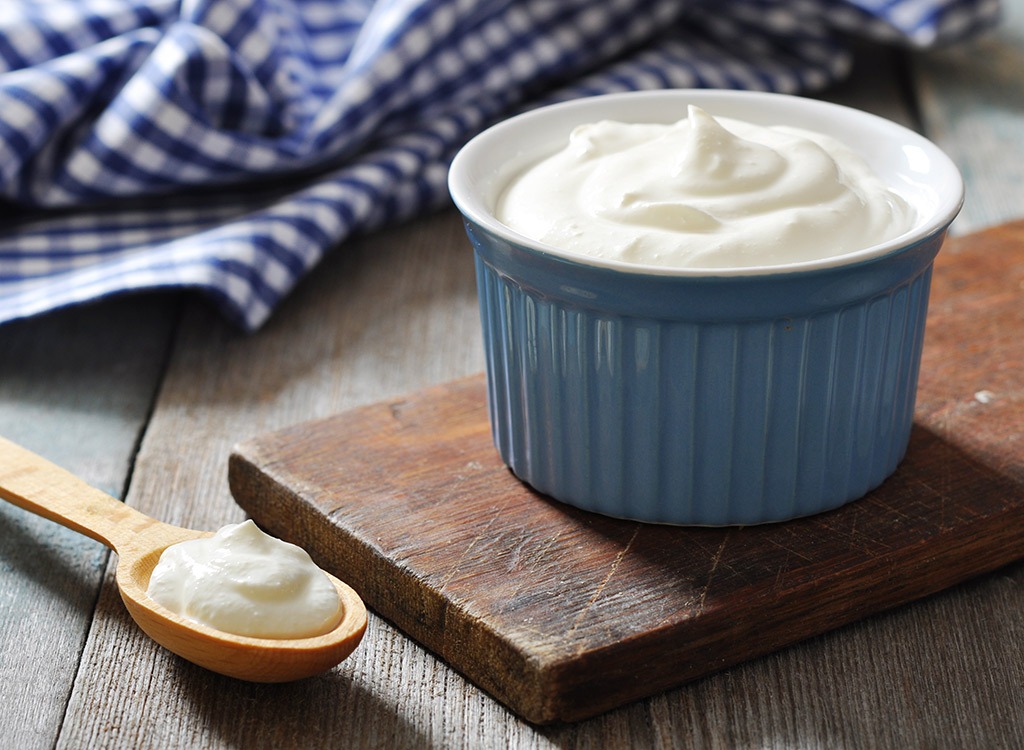
Don’t be fooled into thinking the offerings at Pinkberry are going to do your body biome right. All of the processing that frozen yogurt goes through kills off most of the healthy cultures. And even most yogurts you buy in the dairy section are so high in sugar that they’ll do more for the bad bacteria in your belly than they will for the good. If you choose to eat yogurt, look for the words “live active cultures” on the label, and for brands with less than 15 grams of sugar per serving. Most Greek yogurts are higher in protein and lower in sugar than their non-Greek counterparts. If you want to make it even easier to choose a healthy option on the run, use our list of the best yogurt brands for weight loss.
DARK CHOCOLATE

Dark chocolate is a dietary white knight. Chocolate-loving microbes in the gut convert the candy into anti-inflammatory compounds, researchers at the American Chemical Society found. When the cocoa reaches your belly’s digestive juices and enzymes, it’s feasted on by your belly’s good gut bugs, which ferment it into anti-inflammatory compounds. Bingo: You lose belly bloat. (Dark chocolate also dilates blood vessels to lower blood pressure, which can lower your risk of stroke.) Look for a cacao content of 70 percent or above. The ACS researchers said the amount that seems to be beneficial is the equivalent of two tablespoons of cocoa powder a day, or three-quarters of an ounce of chocolate (one square is about 1 ounce).
SPIRULINA
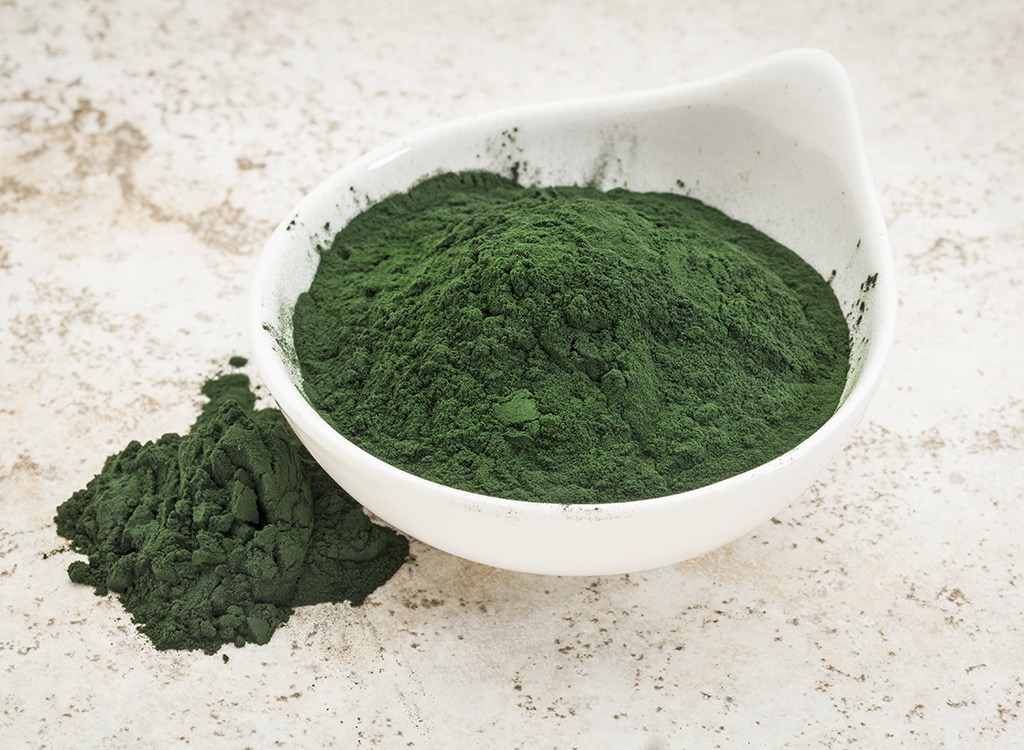
This blue-green alga, available in powders and supplements, is super-rich in protein: It contains all necessary amino acids. Research into its probiotic properties is preliminary but promising. A study published in Oxidative Medicine and Cellular Longevity found spirulina effective in growing cultures of the helpful bug Lactobacillus acidophilus as well as other beneficial gut bacteria while preventing metabolic syndrome. Research in the journal Nutrients found that it reduced diabetic kidney disease in rats, and a study printed in the journal Scientific Reports found it protected mice from H1N1 flu infection.
Bonus: The green stuff may be able to flatten your belly by burning fat during exercise! Nine moderately athletic men took either spirulina capsules or a placebo for four weeks in a study printed in Medicine & Science in Sports & Exercise. Afterward, the men who had taken spirulina supplements were able to run 30 percent longer than the men who had taken a placebo and burned 11% more fat during a run!
SAUERKRAUT

Although sullied by its association with hot dogs, sauerkraut is fermented cabbage, and it contains natural compounds that have potent cancer-fighting and belly-slimming properties. Unpasteurized sauerkraut is rich in probiotic Lactobacillus bacteria—it even has more than yogurt!—which boosts the healthy flora in the intestinal tract and bolsters your immune system. But it will also boost your overall health: Mice fed this strain of bacteria isolated from Chinese sauerkraut had reduced cholesterol levels, in a study published in the World Journal of Microbiology and Biotechnology. And one cup packs 34% of your daily recommended dose of vitamin C and a solid, satiating 4 grams of fiber. “when you buy sauerkraut, be sure to look for one that hasn’t been pasteurized—the high temperatures used in that process kill off the beneficial bacteria,” says Dr. Taz.
GREEN OLIVES
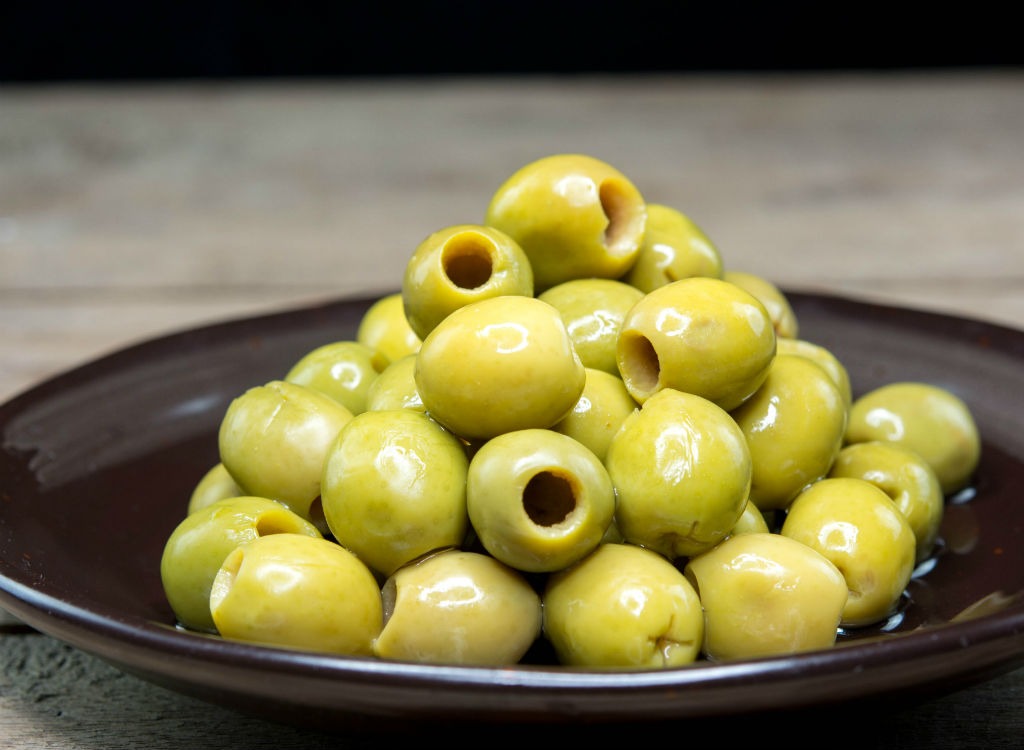
These little green buggers have come a long way from their days as an unsung bar food: Lactobacillus plantarum and Lactobacillus pentosus have been isolated in olives, fed by the brine in which they’re soaked. And L. plantarum shows great potential for getting you that flat stomach you’re after: This strain can balance your gut bugs and decrease bloating, particularly in people with irritable bowel syndrome, according to a study in Microbial Ecology in Health and Disease.
QUINOA
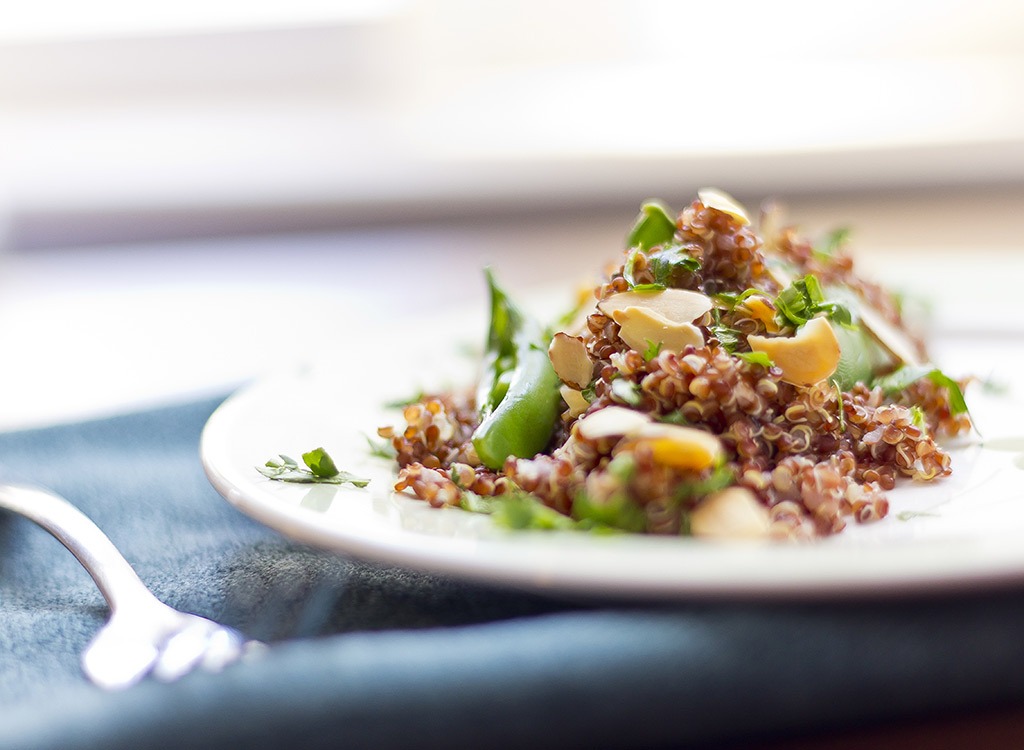
Fiber-rich plant foods like quinoa feed our gut bugs while helping to turn off the genes linked to insulin resistance and inflammation. But while most whole grains and fiber-rich vegetables help this process, quinoa deserves a special place in your daily diet because of its status as a complete protein—one of the few plants that can replace meat entirely. That’s important because a Harvard study found that a diet based primarily on animal protein—especially one that involves a lot of food packaging and burger wrappers—can quickly alter the delicate balance of microbes in your belly. And reset your entire body—and mood—with this recommended and cleansing one-day detox plan.
GREEN PEAS
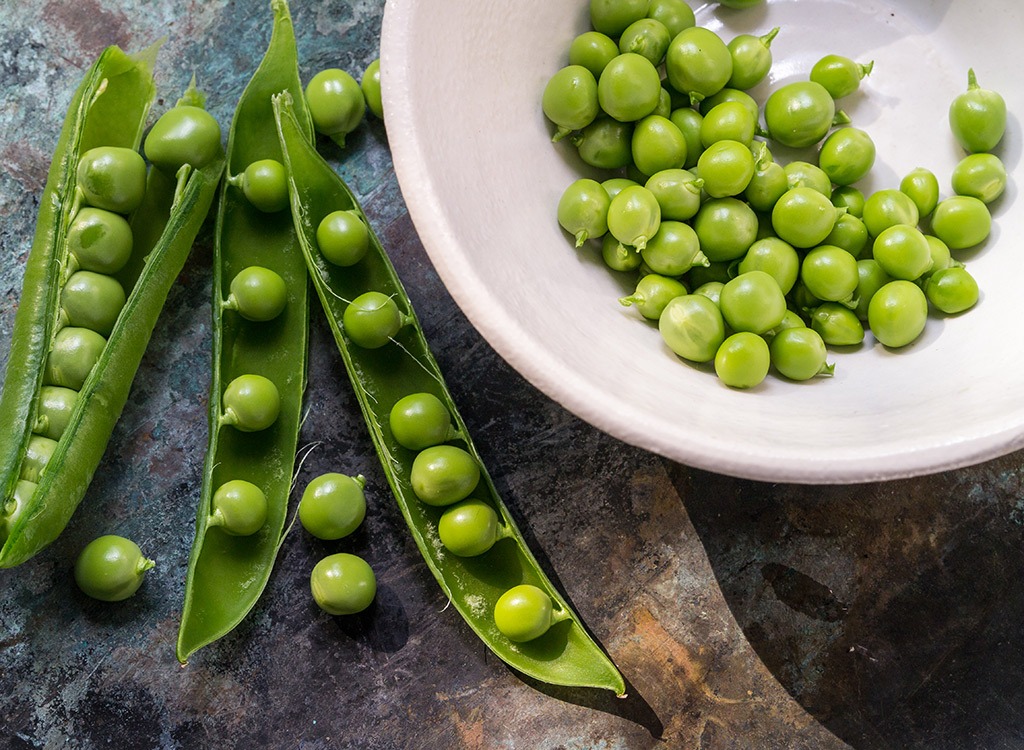
Spinach and kale have a bit of competition for green veg of the moment. But the dark horse of this drag race is the humble green pea. Japanese researchers found that green peas contain Leuconostoc mesenteroides, a potent probiotic that stimulates your immune system, in a 2014 study published in the Journal of Applied Microbiology. The peas produce lactic acid bacteria that protects the mucosal barrier, a.k.a. the body’s second skin, which runs through your digestive tract and is the first line of defense against bad bugs and toxins. Make sure to skip soggy, salty canned peas and add fresh ones to your salads and omelets, or snack on them fresh.
GLUTEN-FREE BREAD
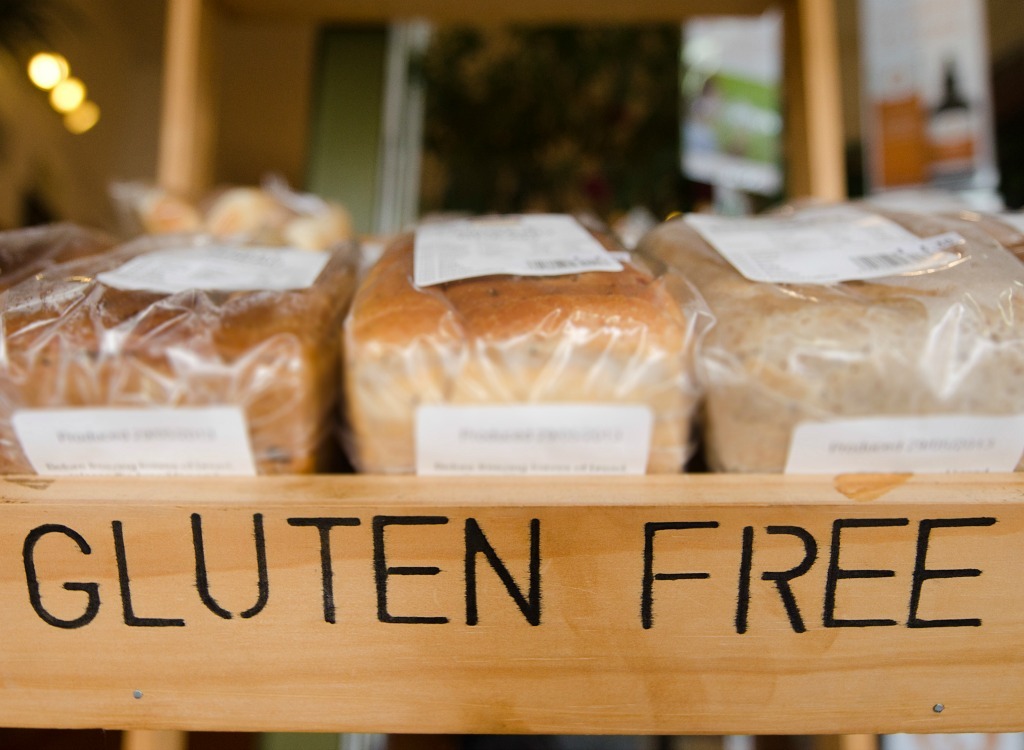
Recent studies have found that gluten can negatively impact gut bacteria, even in people who are not gluten-sensitive. Gluten-free whole grains (like brown rice or quinoa) contain a nutrient called betaine, an amino acid that positively influences the genetic mechanism for insulin resistance and visceral fat.
SUSHI
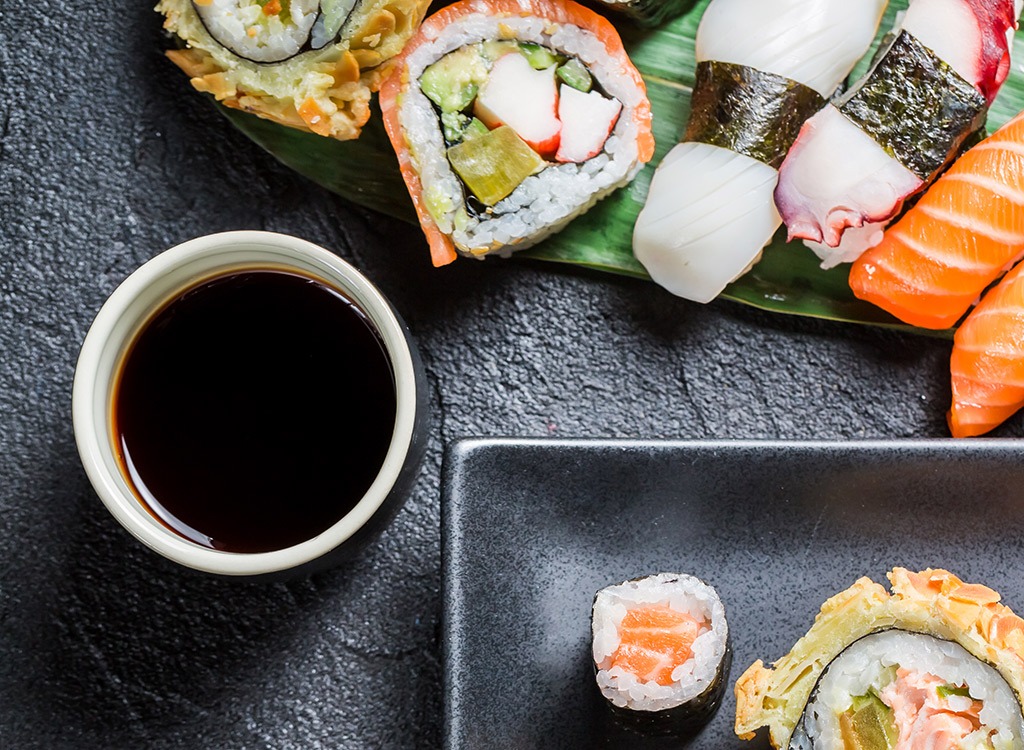
It may be counterintuitive to eat raw fish to help improve your belly biome, but choosing raw or lightly cooked meats over other forms of protein can give your gut bugs the edge. When you cook meat at high temperatures, chemicals called heterocyclic amines (HCAs) are produced. According to a study in Carcinogenesis, increased intake of HCAs causes changes to our gut microbiota that increases the risk of colorectal cancer.
KOMBUCHA

Raw kombucha drinks contain the same kind of yeast and bacteria that’s in yogurt or kefir and nearly all bottled varieties are made with black tea. That means, if nothing else, you can reap the benefits of these ingredients by sipping the brew. Researchers have found that black tea increases the rate at which the body is able to reduce levels of cortisol—a stress hormone that causes bouts of IBS—after a stressful event. As for the bacteria? “Bacteria in the form of probiotics may support gut health, boost immunity and play a role in regulating blood sugar,” explains Smith. It’s possible that it plays a role in keeping the appetite-regulating hormone, leptin, pumping out properly, too.
KEFIR
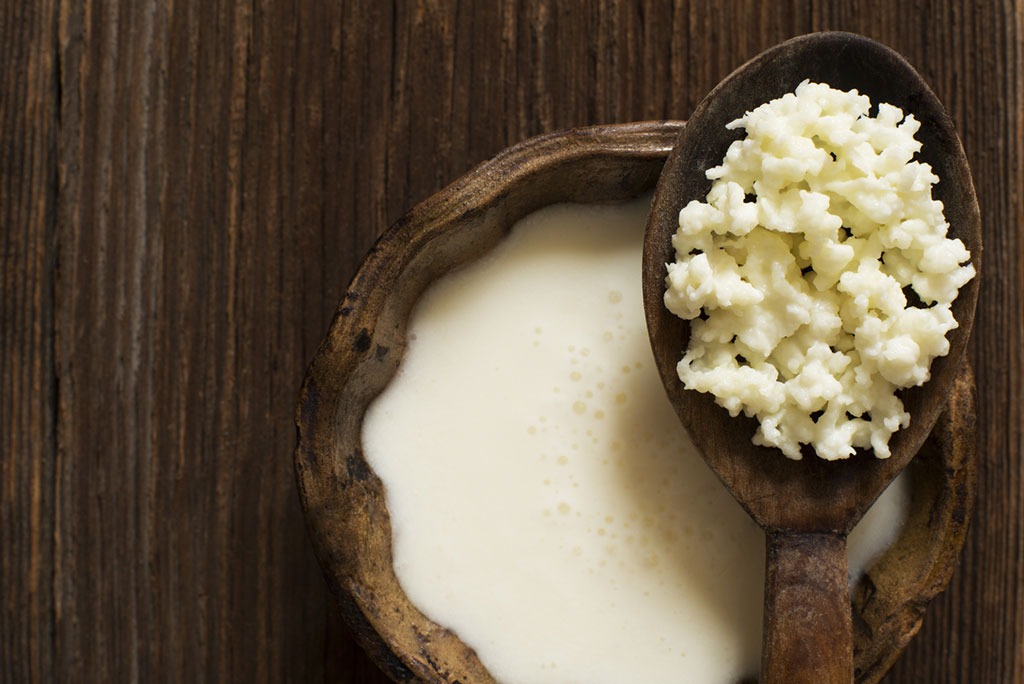
Think of kefir as drinkable yogurt, or an extra-thick, protein-packed smoothie. In either case, this delicious dairy product is an IBS essential. Beyond the satiety-inducing protein, the probiotics in kefir may also speed weight loss. A study in Nutrients found that these active organisms improve exercise performance and reduce physical fatigue in mice. The researchers still need to prove the finding in humans, but there’s no danger in downing probiotic-packed products. We like Lifeway Lowfat Blueberry Kefir—it contains L. casei.
GINGER

Used for thousands of years to tame troubled tummies and aid digestion, ginger is mentioned in Chinese medical texts from the fourth century BC! And for the past few decades, scientists have been proving ginger works at quieting that queasy feeling. One study found that ginger helped prevent and treat motion sickness by suppressing the release of vasopressin during “circular vexation,” aka, spinning around in a chair. Vasopressin is a hormone that regulates levels of water, salt and blood sugar. Other research paints ginger as a powerful muscle relaxant, that helps reduce soreness brought on by exercise by as much as 25 percent, as well as banish bloat. Researchers attribute ginger’s health benefits to gingerols, compounds that are antioxidant, anti-inflammatory, antibacterial—and anti-disease. In fact, studies suggest ginger may reduce symptoms of arthritis, improve cholesterol and prevent cancer. The herb is often recommended as a general aid for digestion and a remedy for diarrhea and stomach upset. Try adding ginger to tea, smoothies, or oatmeal.
Load Up on LOW FODMAP FOODS
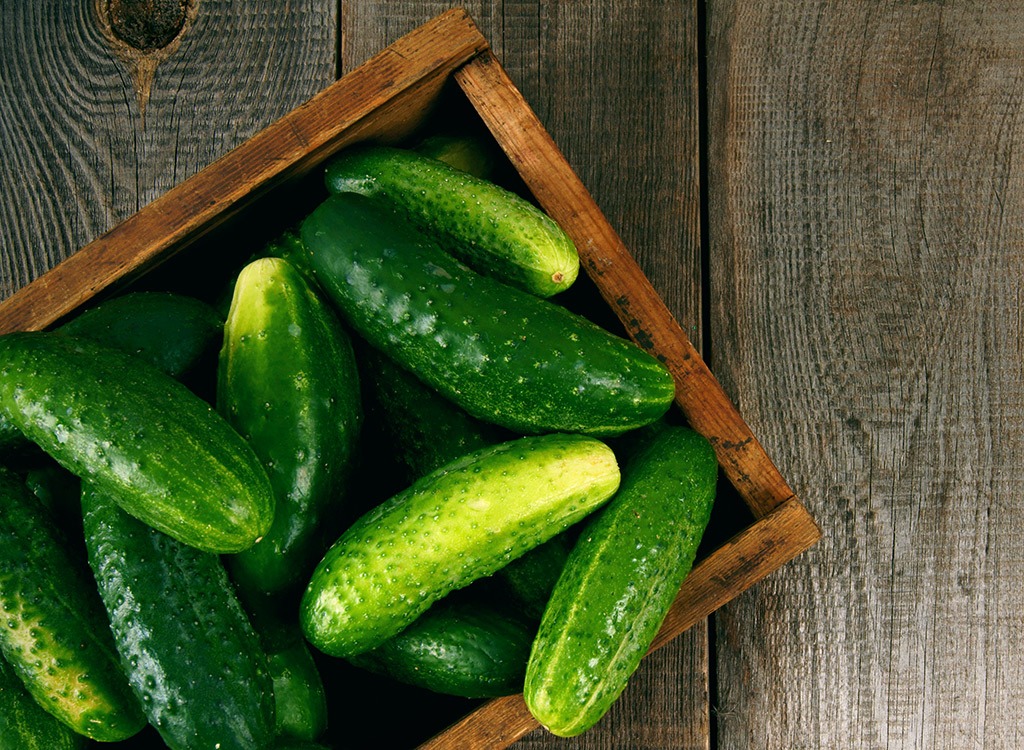
The following foods are considered to be low FODMAP foods or foods that contain low amounts of fructose, lactose, fructans, galactans, and polyols. According to the Low FODMAPs dietary guidelines, consuming low FODMAPs, like the ones below, and avoiding high FODMAPs, alleviates symptoms of IBS.
EGGS
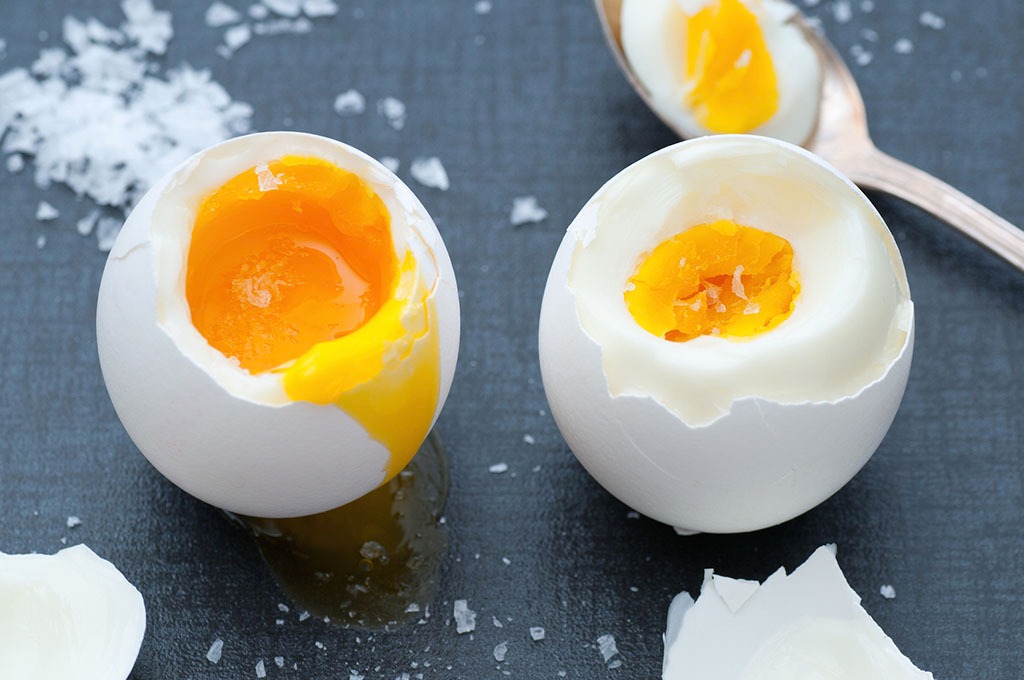
Eggs are a green light when it comes to battling IBS. Beyond easily upping your daily protein count—each 85-calorie eggs packs a solid 7 grams of the muscle-builder—eggs also boost your health. They’re loaded with amino acids, antioxidants and iron. Don’t just reach for the whites, though; the yolks boast a fat-fighting nutrient called choline, so opting for whole eggs can actually help you trim down. When you’re shopping for eggs, pay attention to the labels. You should be buying organic, when possible. These are certified by the USDA and are free from antibiotics, vaccines, and hormones.
BELL PEPPERS
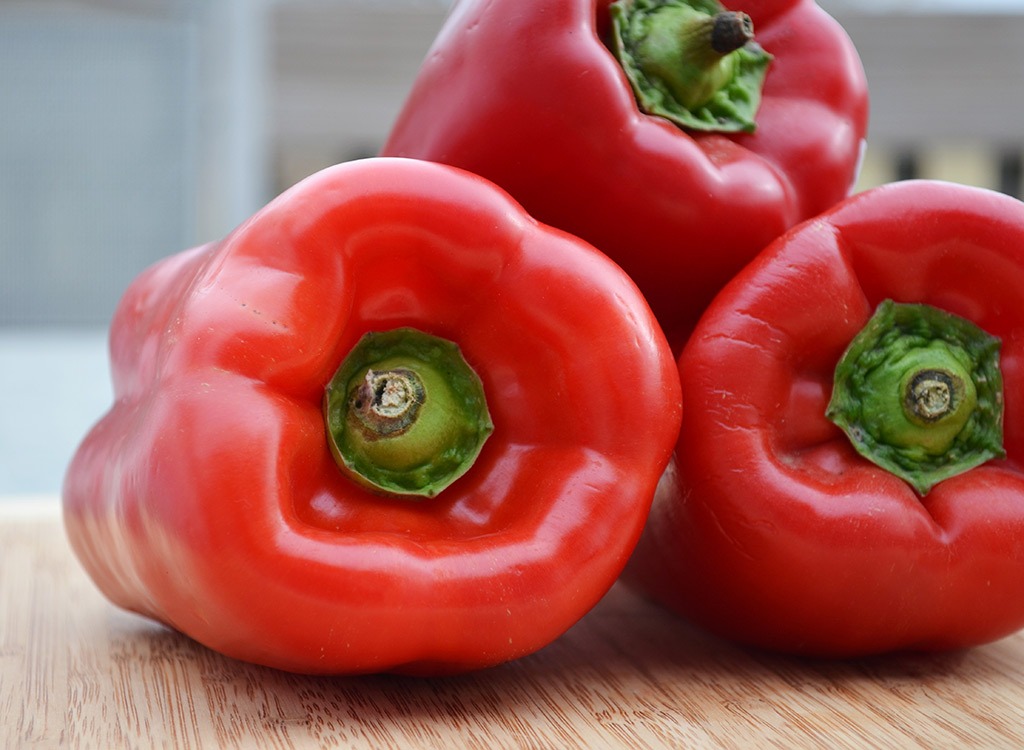
Not only are these low in fructans, but they fight stress. When we stress out, IBS flares and the body starts pumping out the hormone cortisol, which encourages the body to store cholesterol-raising fat around the midsection. The good news is that vitamin C-rich foods like peppers can squash stress. According to German researchers, the nutrient can lower levels of cortisol during stressful situations, helping to uncover your abs and keep you out of the bathroom. Chop some peppers, add them to a hot pan with some olive oil, add in two or three eggs and scramble them up!
COCONUT MILK
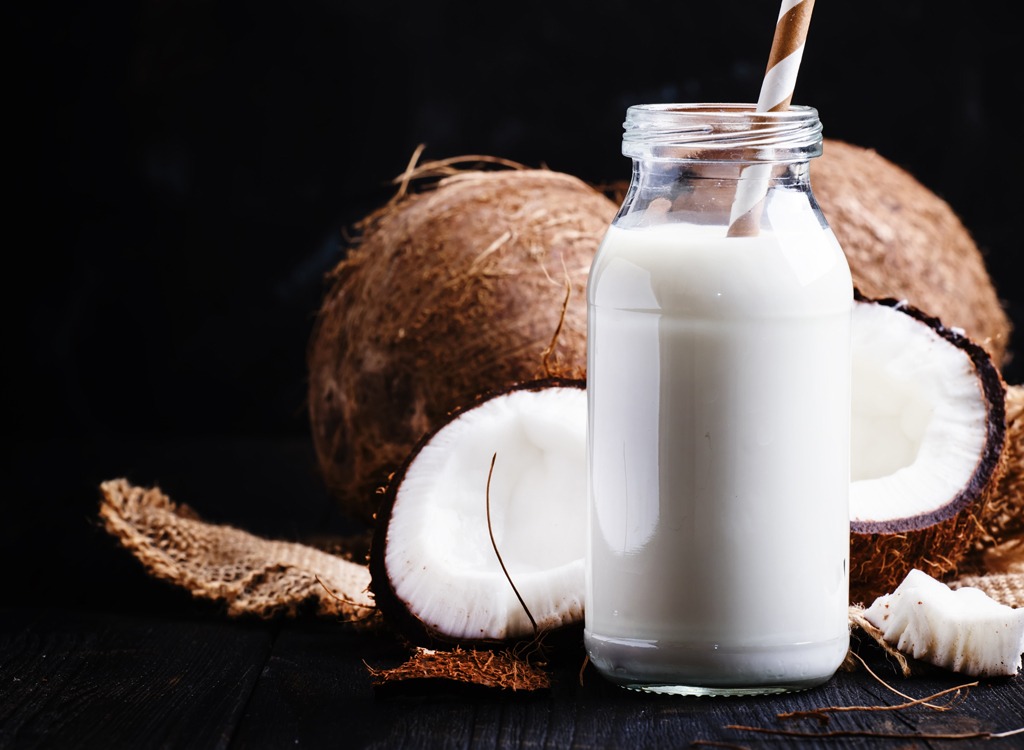
Although most dairy is high in the FODMAP list, coconut milk is a great alternative. And if you’re a fan of whole milk or cream, you’ll love this naturally sweet milk’s texture! The beverage is made from freshly grated coconut meat, which helps give it a natural, creamy thickness. Coconut milk is loaded with medium-chain triglycerides (a type of easily-digested healthy fat that helps fry flab), potassium, and a host of additional fortified vitamins (some brands have 50 percent of the day’s B12!), making it a healthy way to add a tropical twist to coffees, teas, oatmeal, cereal and homemade smoothies.
CUCUMBERS

Cucumbers are comprised of 95 percent water, aiding in hydration and acting as a natural diuretic to keep you regular and boost weight-loss efforts. One medium-sized cucumber contains only about 45 calories, so you can chomp away guilt-free without upsetting your gut. Put your peeler away, too; the skin of a cucumber retains many of its nutrients including vitamin C and vitamin K, which helps regulates blood clotting and contributes to healthy bones.
GRAPES
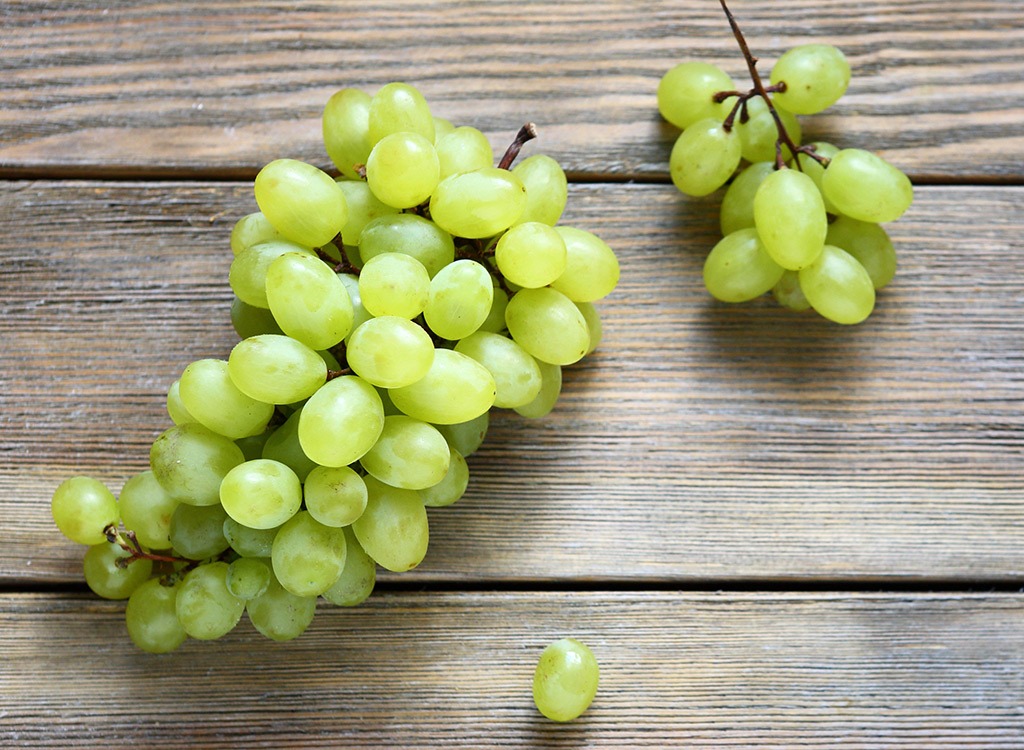
Grapes are low in fructan and contain anthocyanin, a name used for certain purple, blue or red antioxidants that may fight IBS and aid in weight loss thanks to their ability to inhibit inflammatory chemicals. Dark grapes, which boast high amounts of ellagic acid, are a particularly good choice as they can spike fat burning in your body. Plus, they taste like nature’s candy. Rinse and toss them into the freezer for an IBS safe snack that will nix those late night sugar cravings.
SWEET POTATOES

One large, flavor-packed spud serves up 4 grams of satiety-boosting protein, 25 percent of the day’s IBS fighting fiber and 11 times the recommended daily intake of vitamin A, a nutrient that aids immune function, vision, reproduction and cellular communication. The most impressive part is that you can reap all of these benefits for a mere 162 calories—it’s truly a nutritional champion!
QUINOA
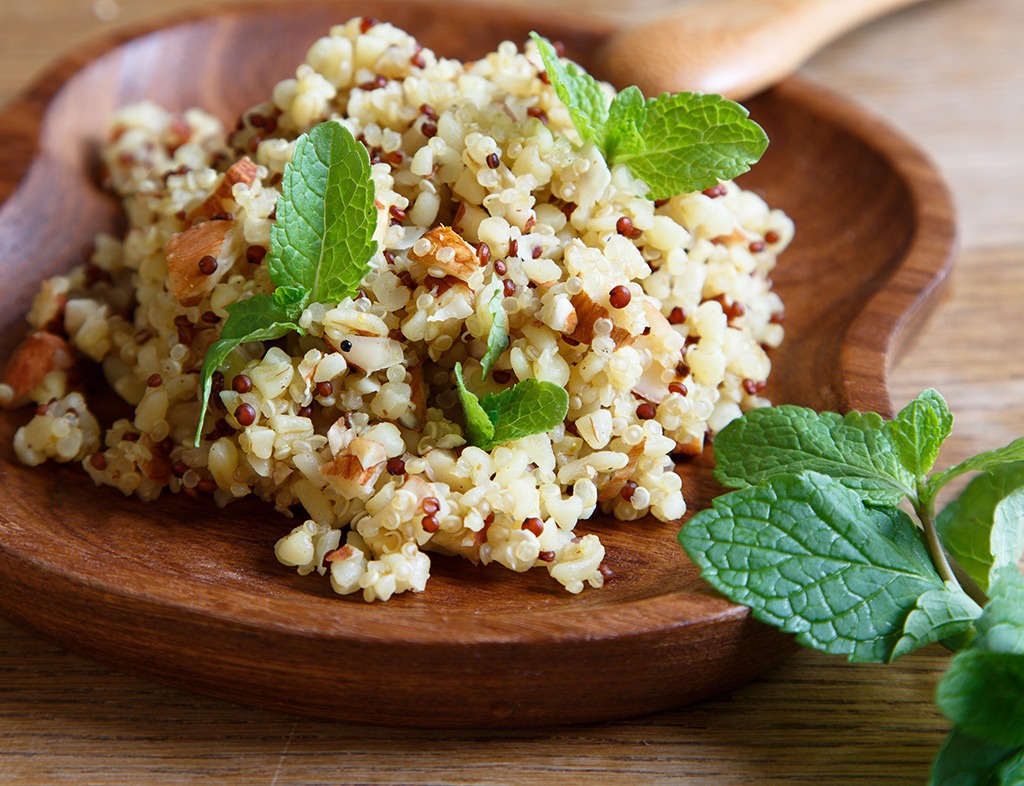
Quinoa earns its buzz. Its amped-up nutrition profile is leaving go-to grains like brown rice in the dust. Quinoa is the only grain that’s a complete protein, meaning it contains all nine essential amino acids, says Jackie Newgent, R.D., author of 1,000 Low-Calorie Recipes. Plus it lacks gluten, which can worsen symptoms of IBS. Substitute this superfood in rice and pasta dishes to add an extra protein punch.
CARROTS
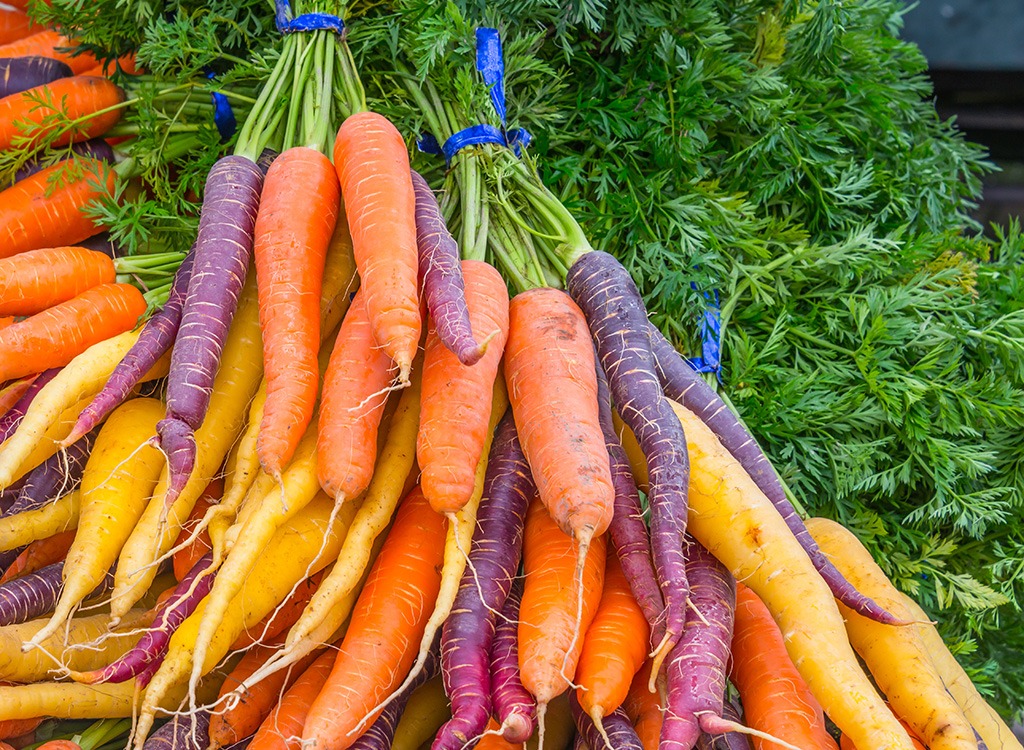
Fight IBS, weight gain, and get a sexy glow by swapping your afternoon bag of chips with these a bag of carrots. Low on the FODMAP, this veggie is also one of the most satiating out there due to its high water content. And lots of H2O aids in digestion.
TOMATOES
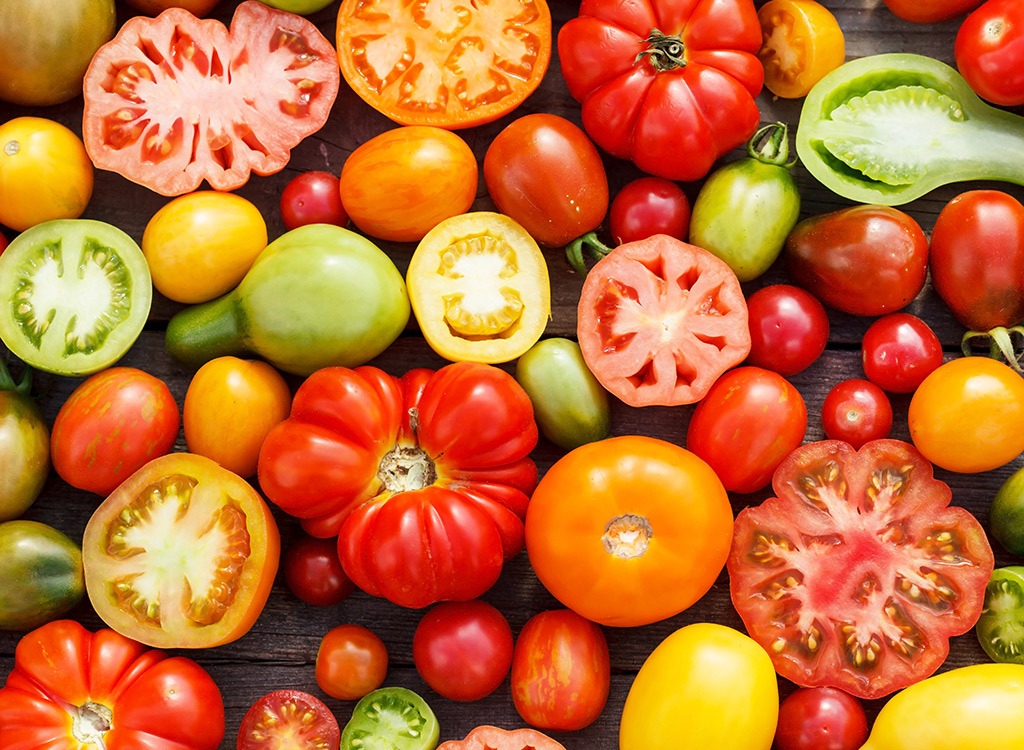
Aside from being gut-friendly, tomatoes are particularly rich in lycopene, an antioxidant that, unlike most nutrients in fresh produce, increases after cooking and processing. Dozens of studies suggest a relationship between regular intake of lycopene-rich tomatoes and a lower risk of cardiovascular disease, skin damage, and certain cancers. Whether you roast them and toss them into a salad, pasta dish, or whip up a quick gazpacho, adding tomatoes diet is an easy and delicious way to combat IBS.
